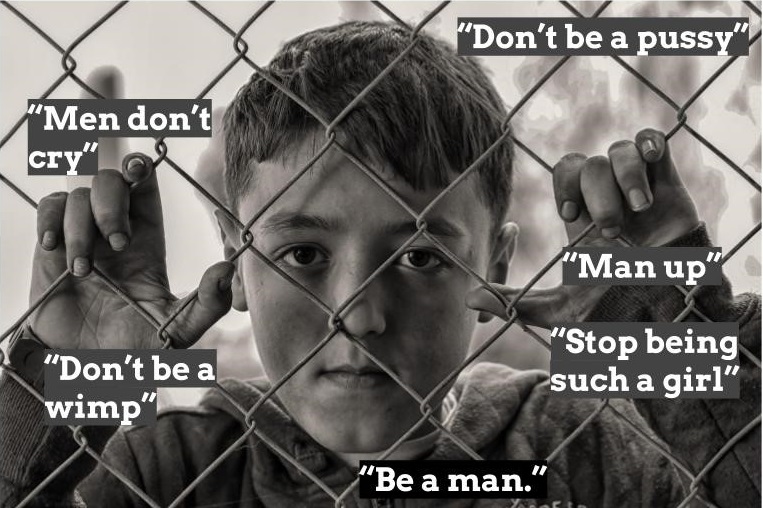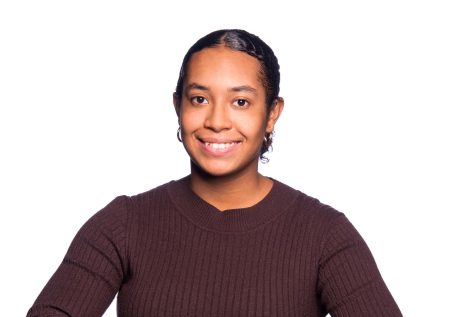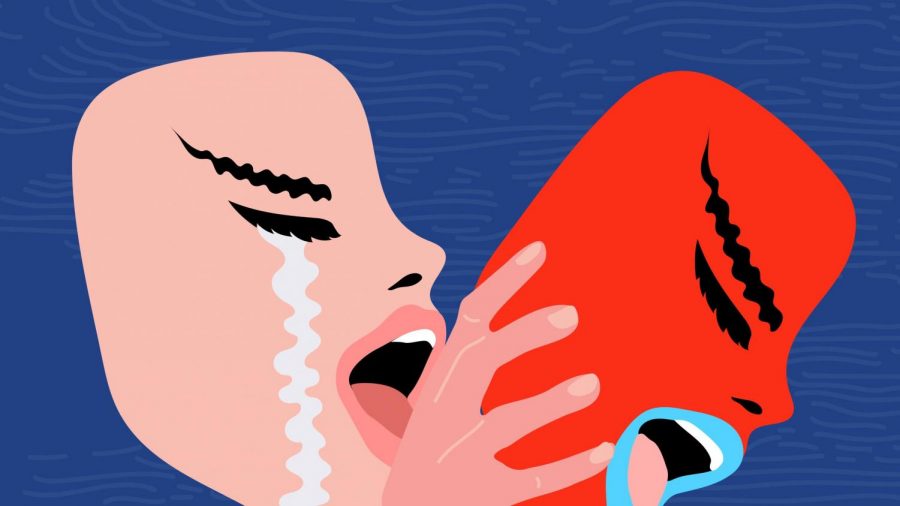Mercy College Redefines Masculinity On Panel Celebrating Male Compassion and Emotion In Men
Identifying the issues surrounding masculinity, understanding where this this term is ingrained in the youth’s mind and explaining ways that the world can help stop the biased harassments towards men and women were some of the main topics discussed during last Thursday’s panel on Masculinity held in Dobbs Ferry and Zoom.
Mercy College’s School of Social and Behavioral Science hosted “Decoding & Redefining Masculinity,” a virtual panel which discussed the setbacks and negativity of masculinity in our culture and how that mindset has been passed down through generations. The event was also sponsored by the the Provost Office.
The event was created by featured key speaker, Professor Sara Martucci; Mac Stanley Cazeau, (@talk2mac_therapist), licensed mental health and marriage therapist; Catherine Buccello, social justice activist and founder of @BlackMenCryToo; and Hassan Daniel, founder of @TheFatherFactory, a platform that helps fathers who are survivors of sexual abuse cope.
Martucci explained how the mindset of masculinity has been engrained on the youth during the early childhood years, which included a video of a group of young pre-teen boys explaining the consequences of being anything other than “hard” and “dangerous” in school.
Cazeau discussed how even though men are least likely to attend therapy because of they were not used to it, they eventually warm up to the idea after understanding that their emotions are respected.
“Prior to a man engaging in a healthy relationship, they have to unlearn the things they were taught about masculinity,” said Cazeau. “At work, males are asked to be unemotional and at home they are expected to be the opposite, so when they are asked about their feelings, many reveal they have felt neglected and for the first time they are asked about their emotional and detect them, which leads them to cry.”
He added how the majority of men who come into his office with their significant others tend to react more shy and standoffish to the idea of therapy, detailing that many of these men were taught in their upbringing and by their friends that going to therapy would be frowned upon and would make one less than a man if attended.
“We live in a capitalist society who constantly rewards dominance and doesn’t reward compassion nearly as much, as a result men are taught and expected to wear the mask and have a poker face so we’re not targeted,” said Cazeau.

Most men are chastised for attending therapy, he says, but once they participate, many of them find the experience enjoyable and come away with much more beneficial knowledge than shame.
“Ninety percent of males will cry before session three,” said Cazeau. “Its not that males lack emotion, its that they have been primed to act like they have none in society. If we constantly teach them that males don’t cry, then when they get in relationships, they will be unable show their emotional side because they were not taught to express them when they were growing up.
For her discussion, Buccello expanded more the topic of vulnerability in men and discussed more specific personal stories of those she encountered.
She described an incident where one of her close male friends in high school committed suicide due to the unhappiness he was feeling inside. She detailed how even though her friend came off as one joyful and happy on the outside, he was lonely and afraid to share his true emotions which eventually led to his death. Though she partially blamed herself for his death since she didn’t see the warning signs, it took her a couple of years to realize that in addition to a mental health issue, he most likely didn’t feel comfortable sharing his emotions due to the fact that many men were not openly speaking out about mental health challenges at the time. After she made that realization, she created BLACKMENCRYTOO, a social media platform that allows men of color to unpack their truth and shed their true emotions on different issues.
“The media projects an image of black males as gangsters and overly masculine but many of them struggle through Post Traumatic Stress Disorder (PTSD) and have emotions that they can’t express,” says Buccello.
She described a time that she met a man through her platform who was known around his neighborhood as a gangster and one of the most masculine appearing men she had ever met. After having a long and honest conversation with him, she discovered that he only liked to portray the image of being cocky because he was taught that all males were supposed to portray that image.
“Continuing to have these difficult conversations takes away the perception of them being taboo,” says Buccello. We want to normalize these conversations. We are encouraging other to own their voice and eliminate the stereotype that men don’t have emotions”.

Daniel stressed the topic of the importance of teaching men that it’s okay to shed emotions, but he delved more into a more specific and personal subject for him.
He described the roots and purpose of his outreach platform @thefatherfactory, a platform that allows men (specifically fathers) who have experienced sexual abuse tell their stories and help others cope and heal from the pain and trauma they experienced.
“Where I grew up in Brownsville, telling these stories can get you killed,” says Daniel. “There is stigma that comes from telling your story and that stigma gives you shame.”
On average, male survivors disclosed the their assault around 20 years after the initial incident he points out. Much of that waiting period of the stigma that comes along with male sexual assault victims.
“We have to do work around masculinity,” says Daniel. “We have to get a balanced idea of what it is and how it functions and identify the counterfeits to erase it.”
“There’s a mask that you put on that helps you survive,” said Daniel towards the end of his discussion. He described that putting on that these men put on the mask is because they are terrified about what others would view them as when they take their mask off. He described that many men feel hopeless when discussing their assault(s), but it’s not discussed then there isn’t going to be any progression.
The panel then shifted to a question and answer portion, where the audience was able to ask the panelists questions and also interject their own personal stories with fellow audience members and the panelists.
When discussing the projection of masculinity and objectification of women in rap music and videos, many of the audience members and panelists described how even though we need to blame the artists’ and industry for projection the image, people need to be accountable for feeding their behavior.
“Artists’ write because they’re at different places in their life and they still believe in the sickness (masculinity). We are hearing and listening to the sickness and that’s where the problem stands. it is the deviance and we need to teach children to defer from it,” says Daniel.
Adding on to Daniel’s point, Buccello says, “Its what we’ve made acceptable. It falls on us as well we need to stop funding this notion of masculinity and degrading women.”
The panel ended with Martucci thanking the panelists and audience members for their time and honesty. She also concluded with describing how in order for masculinity to come to a halt, we (the people) need to stop feeding into the notion and expand our mindsets.
Martucci left the audience with a salient question: “What are you willing to change?”

Britney Guzman is a Senior at Mercy College. She writes a column called Quali-Tea News where she discusses her love for cats, Taylor Swift and mental...








